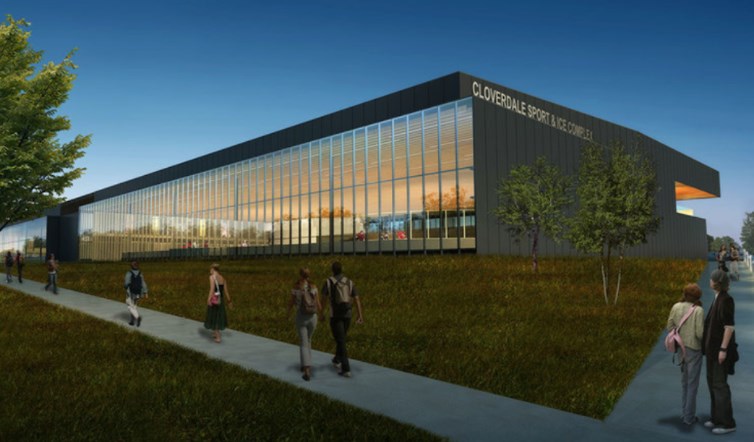Surrey city council unanimously approved a $150 million loan for three major community projects, thus taking advantage of rock-bottom interest rates but punting further tax increases down the road.
The city will need $90 million for a new Newton Community Centre, including the purchase of 16 land parcels for future parkland surrounding it. The city also needs an additional $40 million for a Surrey City Centre sports complex and $20.6 million for the delayed Cloverdale Sport and Ice Complex, which will cost $50 million in total.
Surrey has low capital reserves and so the choice was to borrow or raise taxes significantly if council wanted to advance the infrastructure projects, which are required to accommodate population growth, according to planners.
At a council meeting Monday, councillors Linda Annis and Brenda Locke voted in favour of the debt but said they did so reluctantly. They both said the loans are needed because of the costs of the police transition, which they oppose.
“I continue to be concerned about the level of borrowing we will be doing and I will support the development of infrastructure, always. There’s no question the level of borrowing we are doing would not have to be done if we were not doing the police transition,” said Locke.
Annis said there’s “no firm grasp” of what the police transition will cost when it is completed some time in 2024 or thereafter.
“We’re on a slippery slope of taxes going up over the next few years,” said Annis.
Surrey already owes $221 million (as of December 2019) to the Municipal Finance Authority, which is expected to authorize the $150 million addition within months.
Mayor Doug McCallum vowed during the 2018 election campaign not to raise taxes for the police transition and stated he wanted to lower the city’s debt.
Owners of an average detached home in Surrey will face a 10.7% increase to their municipal tax bill this year, although this does not include the new debt.
That’s because council tripled the per-household parcel tax, to $300, thus increasing the total take from taxpayers from about $16 million to just under $48 million per year.
Coun. Allison Patton noted Surrey residents pay relatively low residential property taxes compared with others in the region.
“I’m really, really excited about these projects, so let’s get going, let’s get the shovels in the ground, woo woo woo,” said Patton.
But Patton took issue with media associating the tripled capital parcel tax to the police transition.
Coun. Jack Hundial has previously called the parcel tax a “shell game” to fund the excess policing costs.
According to the city’s five-year general operating plan, the city had $35.4 million in new funding requirements this year, including $15 million for added police funding. And new funding sources, including the capital parcel tax, are “expected to be available to offset” those new funding requirements, the plan states.
It is not otherwise made clear in any budget document where exactly the capital parcel tax is directed, although the city claims it will go to 18 “major proposed capital projects,” which includes the three projects it is borrowing for.
While the capital parcel tax is set to raise about $48 million this year, the city is using just $35.7 million from its general operating budget for capital projects.
The city has declined interview requests on how the capital parcel tax is specifically dispersed.



